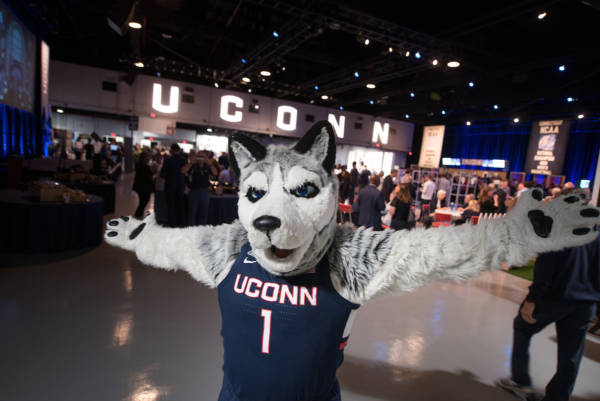UConn Faculty Predict Winners of GOP, Democratic Primaries
At a recent event at the Mark Twain House, UConn political science professors weighed in on the 2016 presidential race and predicted who would win the primaries.
UConn President Susan Herbst, herself a scholar of public opinion, media, and American politics, was the moderator and challenged the panelists to predict who would win their party nomination. Nearly all agreed that former Secretary of State Hillary Clinton would be the Democratic candidate, while Sen. Marco Rubio (R-Fla.) would be the GOP favorite.
Herbst took it one step further, sharing her predictions for the vice president as well. She speculated that Clinton would pick Sen. Elizabeth Warren (D-Mass.) as a running mate, while Rubio would choose former Ohio Gov. John Kasich.
About 40 alumni and area residents came to the panel, co-sponsored by the UConn Foundation and the Mark Twain House and Museum. UConn held a similar political panel in Stamford this fall.
The panel is part of the university’s larger effort to engage the community. UConn recently launched a series of science salons designed to stimulate public discourse on science and culture. Alumni, business leaders and others can join UConn scientists and researchers to examine technological developments and debate health and human behavior in a lighthearted atmosphere.
During the political panel discussion, political science professor Paul Herrnson discussed how campaign finance is shaping the race, while Shayla Nunnally, and associate professor of political science and Africana studies, talked about how shifting demographics are changing voting blocs.
Nunnally said 90 percent of black households voted for a Democrat in the last presidential election. At the same time, the white population is increasingly becoming Republican, she said. She predicted that race would be a major factor in the presidential election.

